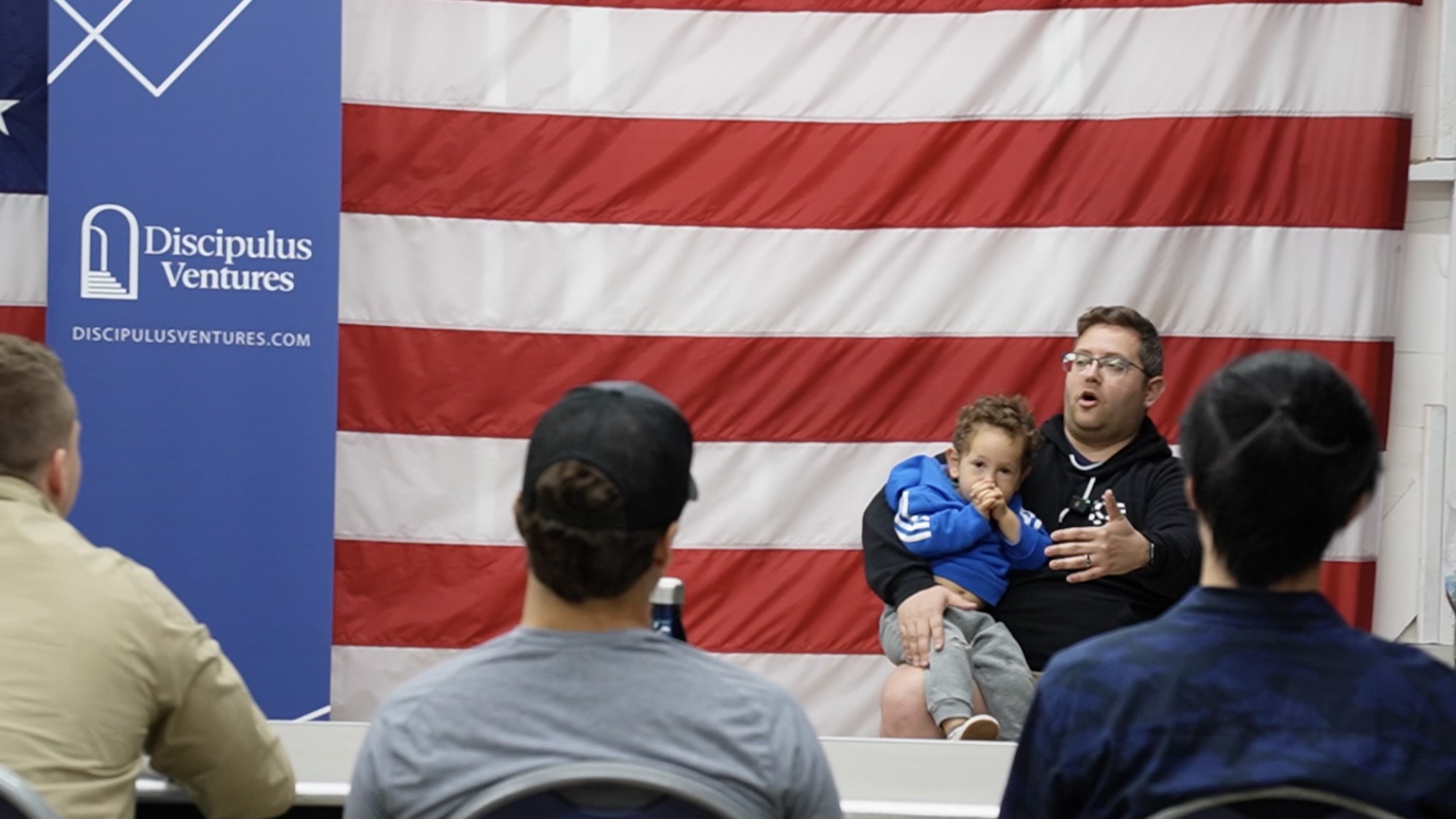ARTICLE AD
Scores of accelerator programs run every year with the aim of identifying and cultivating founders in the earliest stages of building a company. Only a fraction seek out founders that are explicitly aligned with some set of values — let alone classically conservative values like family, patriotism and faith.
Discipulus Ventures, which kicked off its first ten-person cohort yesterday, is a singular exception. The mentorship program for young founders is interested in bringing together a rather idiosyncratic type of person, at least in tech: those with the idealism of Plato and the rationalism of Aristotle, with a strong drive to revive a Norman Rockwell-esque Americana.
And instead of building B2B SaaS companies, the cohort will all be working on problems related to hard tech, defense, or industry — what’s sometimes broadly called “American Dynamism.”
The program’s website is clear about this, with its call to student founders who have “a strict devotion to truth and goodness” and whose vision of the future combines “their entrepreneurship, personal virtue, and obligation to our country.” The emphasis on values stems from a conviction, held by the program’s three founders, that young people are not working on solving some of the hardest problems confronting the country — reshoring manufacturing or providing the electricity grid with plentiful clean energy — because their values are no longer pushing them toward mission-driven companies.
In a recent interview, one of Discipulus’ founders, Jakob Diepenbrock, pointed to a recent poll from the Wall Street Journal and the nonpartisan research organization NORC that found that values like patriotism, religion and having children have fallen precipitously amongst Americans since the late 1990s. But while these priorities have declined, making money went up.
He and his two cofounders — Isaac Yi, Discipulus’s COO, and William Pan, the entrepreneur in residence — say they witnessed these values play out across some of the country’s top university campuses, with students flocking to entrepreneurship as essentially a means to an end: to make a bunch of cash quickly, or to fit in with their peers. (Diepenbrock himself only graduated from high school in 2022, according to his LinkedIn.)
“A lot of people were starting companies, it wasn’t for the right reasons, we realized,” he said. “It’s kind of just a popular thing to do today. You go to school and you start some social media company or some ‘Uber for X’-type company, because that’s the popular thing to do, that’s what everybody else is doing.”
The issue, he says, is compounded by a more general constriction in the types of thinking and speaking that take place on university campuses: essentially, students are becoming more afraid to say what they think, let alone voice what deeply matters to them.
“You can’t say what matters, you can’t say what you think is true, and that’s obviously not going to be good if you want to solve these problems,” he said. “If you can’t even talk about them, you can’t solve them.”
Discipulus was born a year ago as a result. An average day during the cohort, which runs from March 25-29, combines community building with talks and opportunities to work with a mentor. Each day starts bright and early with a 6 AM gym workout, followed by time with a mentor — those include a16z’s Katherine Boyle; Josh Manchester, GP at Champion Hill; Michael Gibson, GP at 1517 Fund; and Augustus Doricko, founder of terraforming company Rainmaker — and plenty of time to work. The week will wrap up with a demo day in front of a group of investors.
“The average or median [age] is going to be probably 21, 22 years old, doesn’t really have a network, knows something about raising money, something about go to market — very sharp, but certainly hasn’t done it before, and there’s just tons that they can soak up from each other, just as much from advisors who are helping out,” Manchester said in a recent interview. “They gain the network, they gain deeper insight into their own project and whether they should continue to pursuit or pivot to something else.”
The program is taking place in El Segundo, California, a city just southwest of Los Angeles that hosts major aerospace companies like Boeing and Northrop Grumman. The city’s reputation has grown in recent months as a breeding ground for a new type of hard tech founder, one very much like the type Discipulus is trying to attract. Much of the “Gundo” scene clarified (on the internet, at least) in February, when 20-year-old Rasmus Dey Meyer organized a defense tech hackathon there. For a little while, at least, the social media site X got a reprieve from “e/acc” — a shorthand for a movement that wants to accelerate technological progress on artificial intelligence — with “🇺🇸/acc” taking its place.

Image credit: Discipulus Ventures
Discipulus was born long before the Gundo scene came alive online and the program seems to be taking advantage of the energy there — or rather aiming to cultivate it.
In some ways, Discipulus looks the same as other hard tech events. It’s very male, for one, and there’s a larger-than-life American flag hanging from the ceiling, to clear up any confusion about what country one might be in. But looking a little bit closer, one can see notable differences: perhaps most striking are the mentors, like Galvanick co-founder Joshua Steinman, who bring along their young children to their talks (Valar Atomics founder Isaiah Taylor, a Discipulus mentor, did the same when he brought his daughter to the February hackathon).
It’s a small thing, but it’s walking the pro-natalist walk, so to speak. And it’s not apologizing for it.

 7 months ago
48
7 months ago
48 

